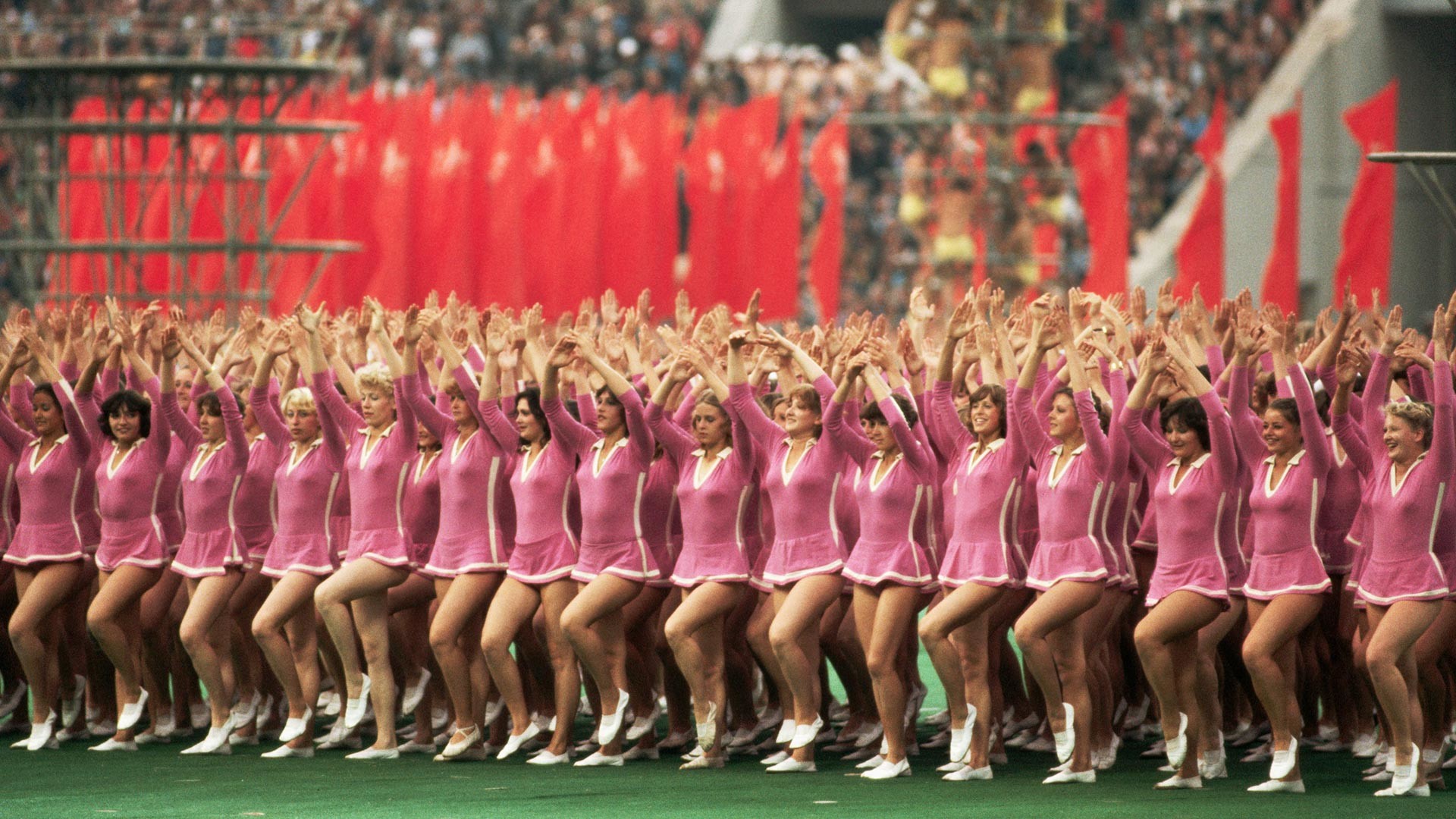
Opening Ceremony for the 1980 Olympic Games.
Global Look Press1. When Moscow was granted the honor of hosting the 22nd Summer Olympic Games in 1980, it beat the Los Angeles Olympic Committee in the running. This became the first time in history the games would be held in a socialist country in Eastern Europe.
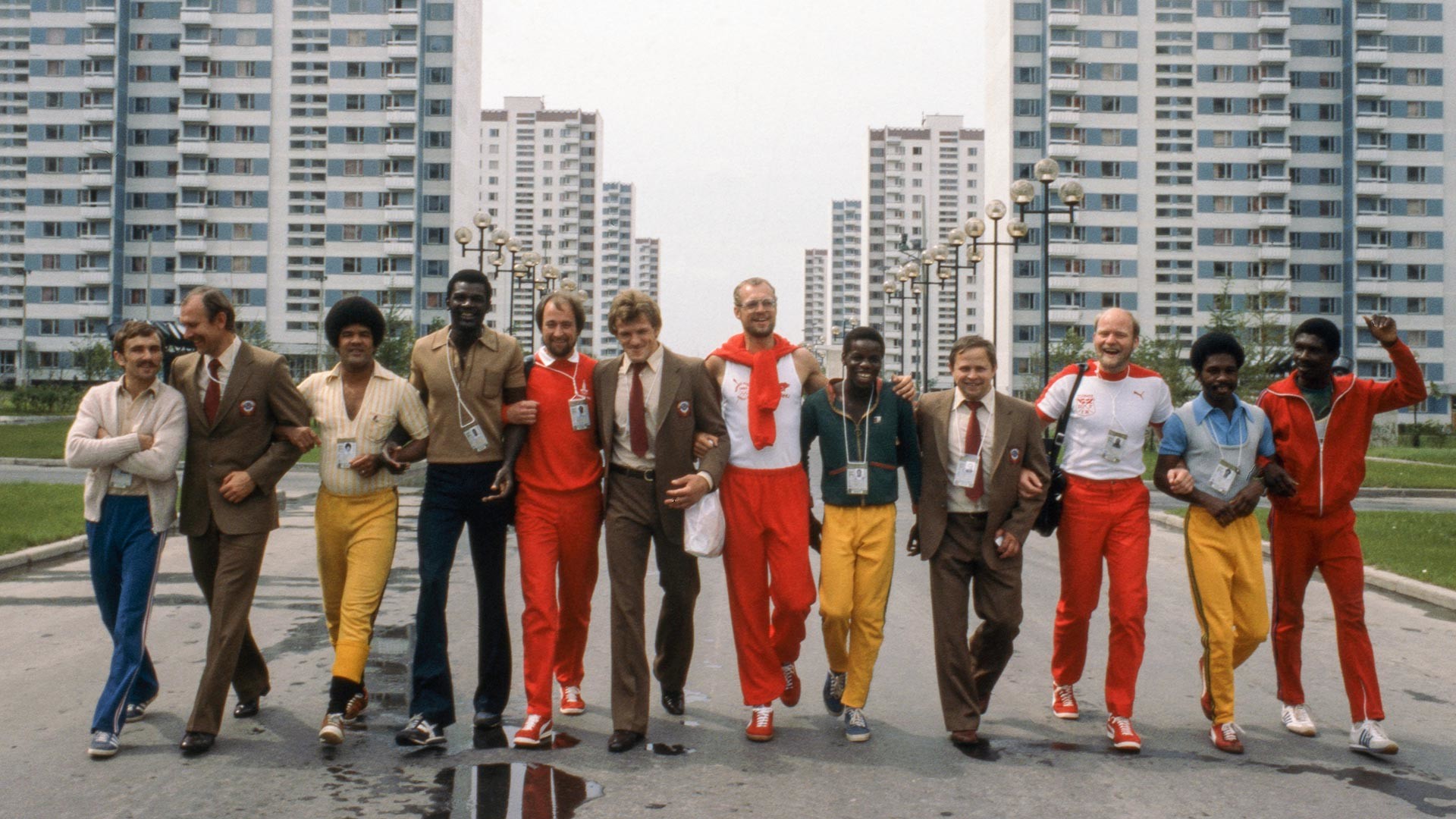
Sportsmen from the USSR, Denmark and Guyana in Olympic Village.
Yuri Belinsky/TASS2. When the Soviet government calculated the costs, the feeling of triumph faded rather quickly. One version of events claims that General Secretary Leonid Brezhnev even mulled ‘quietly’ rejecting the honor of hosting the games. However, with the country’s prestige on the line, this would not have been a good look. So, one way the Soviets planned to offset the gigantic spending was to hold a national lottery, with proceeds going a long way to helping with the enormous bill. When, in 1980, International Olympic Committee (IOC) president Micheal Killanin arrived in Moscow, head of the Soviet government Aleksey Kosygin told him: “Had I known what the Olympic Games was, I would never have given my blessing to hold the event.”
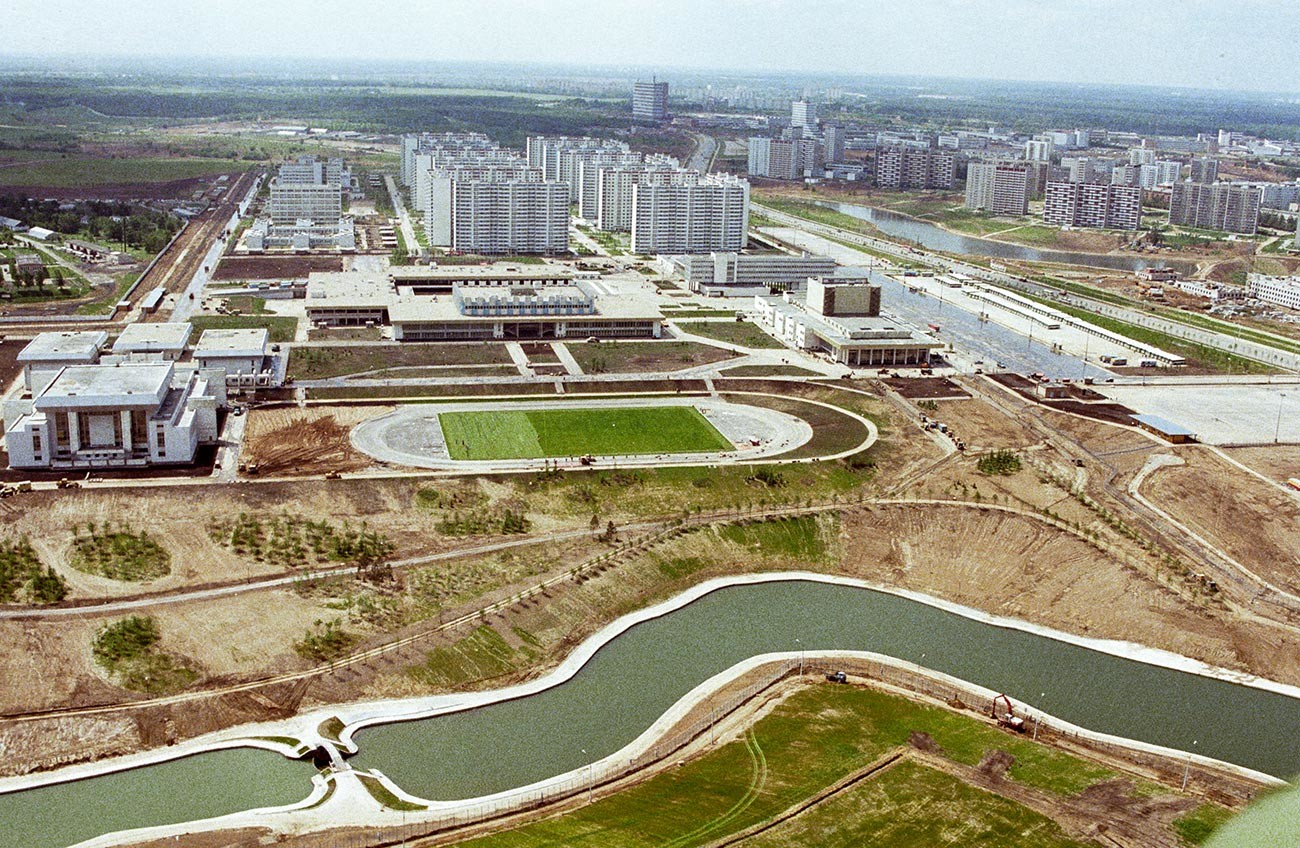
Olympic Village
Yuri Abramochkin/Sputnik3. During the opening ceremony on July 19, 1980, cosmonauts Leonid Popov and Valery Ryumin’s faces graced the Luzhniki Stadium scoreboard, as the pair addressed the athletes live from Earth’s orbit, wishing them all good luck and a great start to the games.
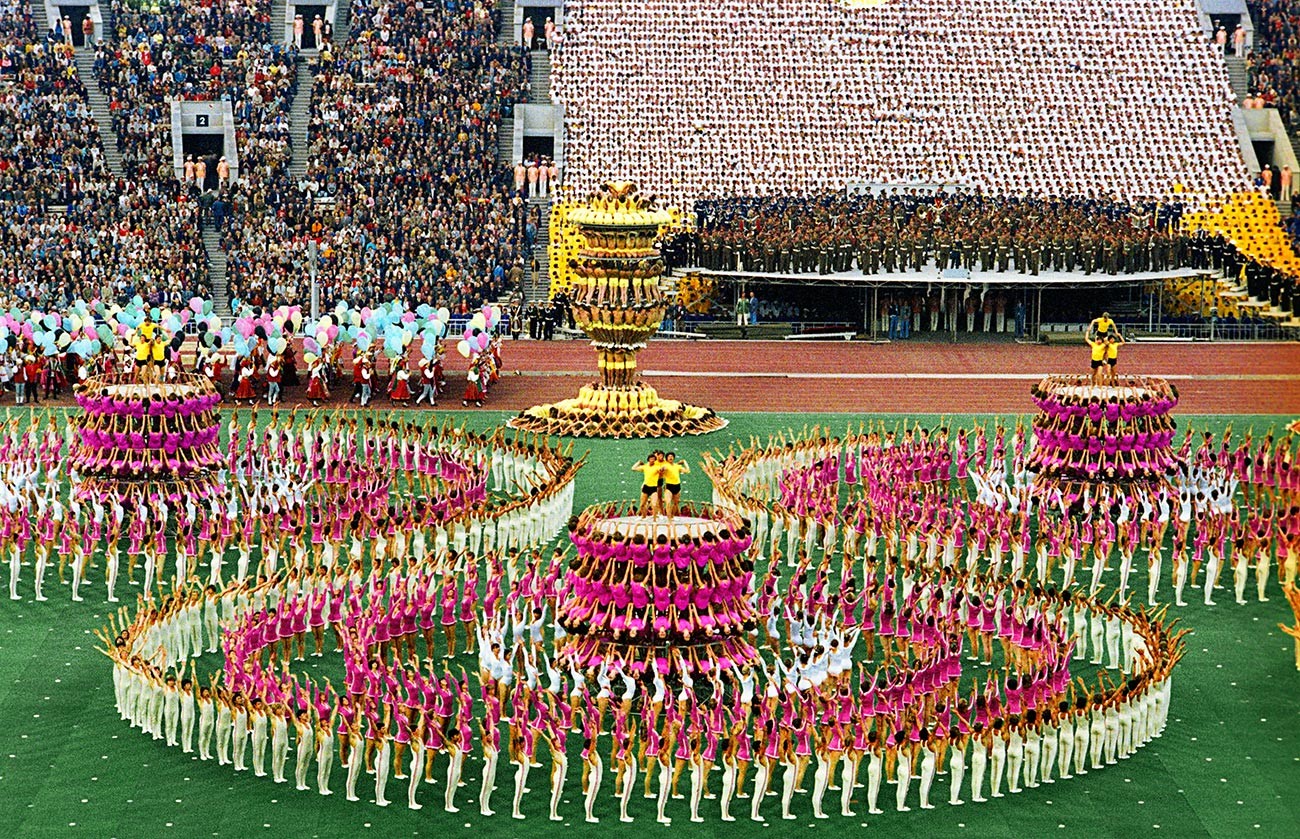
Official opening of 22nd Olympic Games.
Vladimir Akimov/Sputnik4. When Soviet forces entered Afghanistan, 64 countries opted to boycott the Olympic Games in the Soviet Union. 29 of these countries took part in alternative games, organized by the U.S. in Philadelphia - which, however, weren’t recognized by the IOC. That move led to the Soviets then ignoring the official 23rd Summer Olympics in the U.S. four years later.
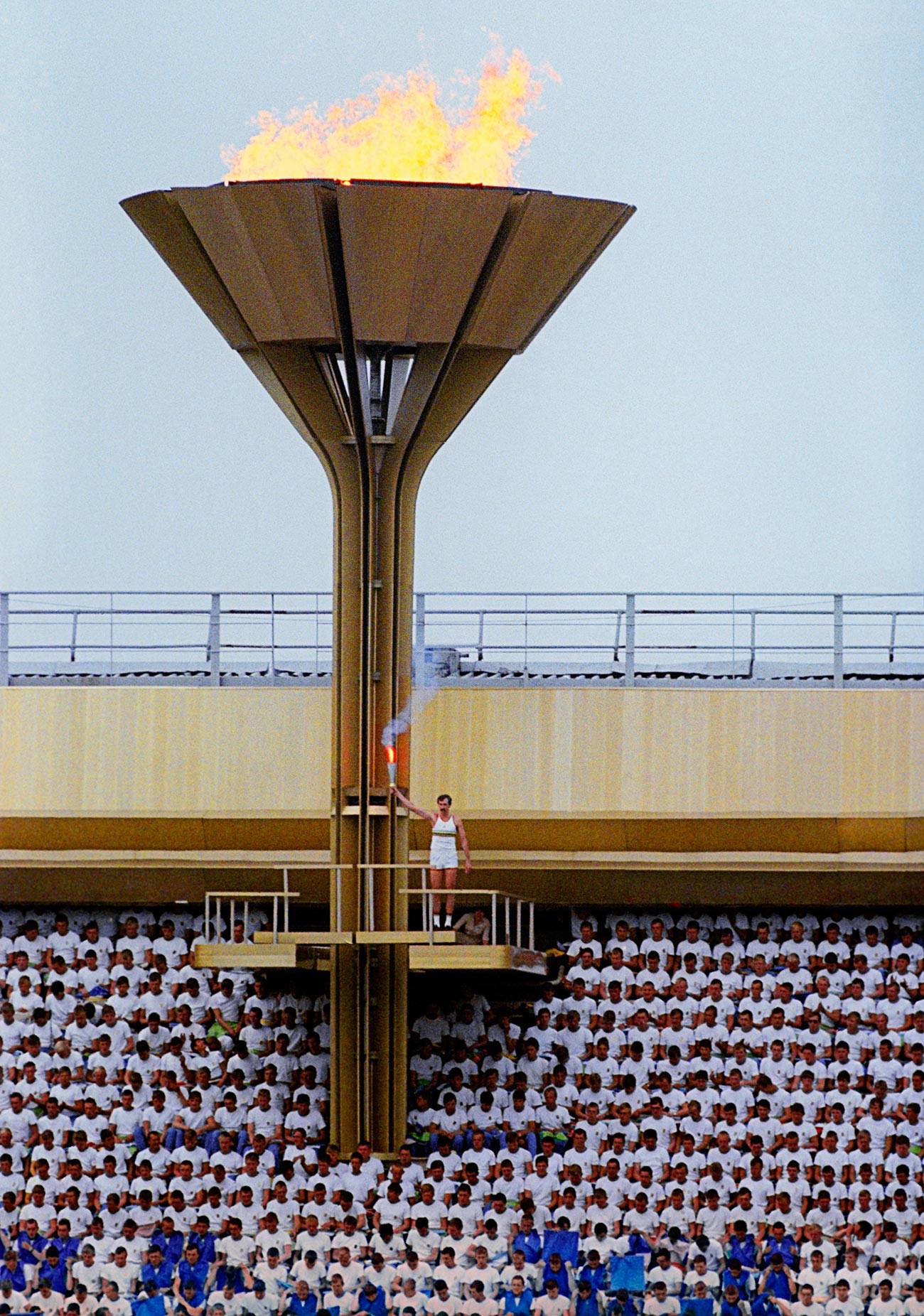
Soviet basketball player Sergei Belov lighting the Olympic fire during the 22nd Olympics opening gala.
Valey Shustov/Sputnik5. The official Olympic teams of the boycotting countries did not come to Moscow in 1980, however, individual athletes were not banned from participating, and many did - under the Olympic flag. The biggest number of these “stateless” athletes came from Italy - a total of 159 athletes. After an unofficial count, Italy (well, Italian athletes) actually came in fifth, with 15 medals, coming just behind the USSR, GDR, Bulgaria and Cuba.
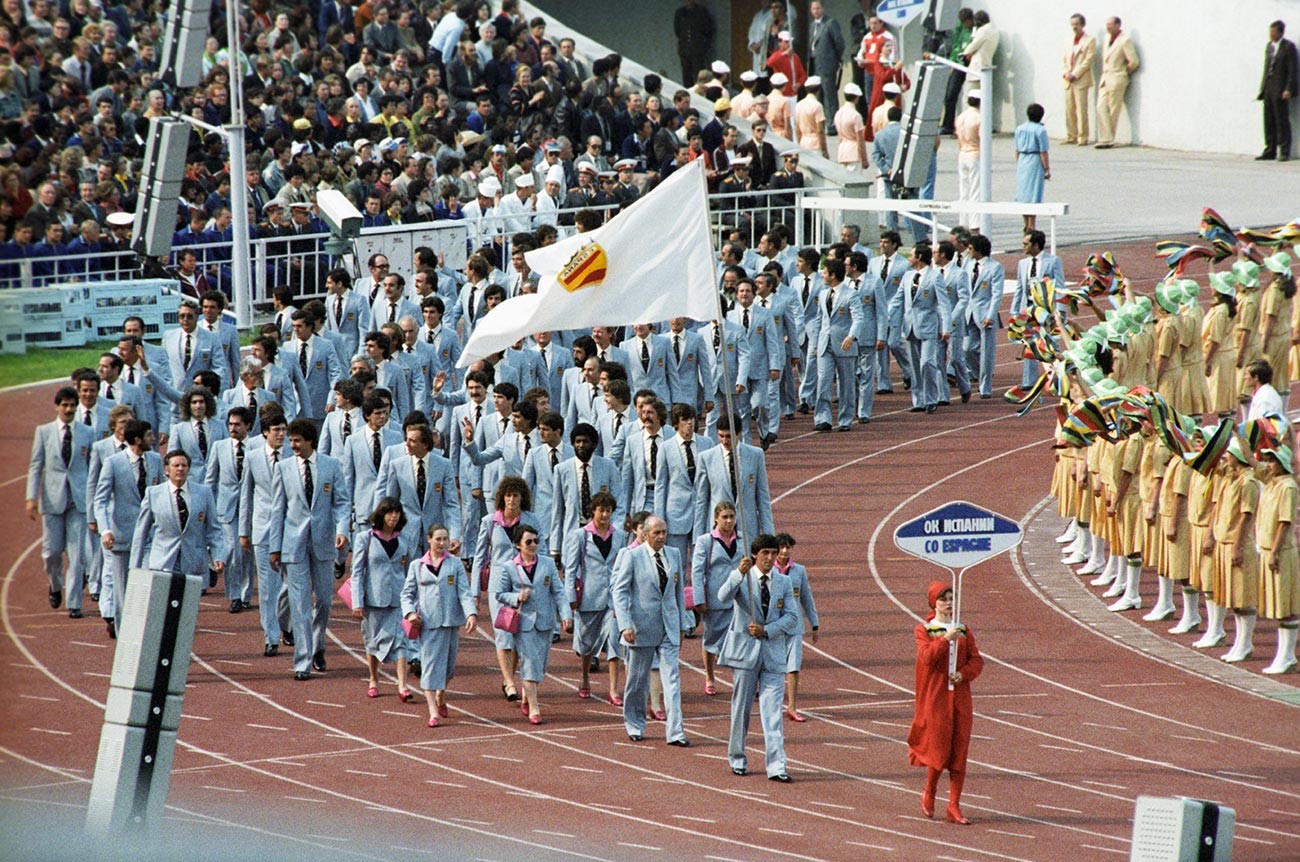
During the parade Spain's Olympic team is walking under the IOC banner.
Sergey Guneev/Sputnik6. In order to circumvent the boycott and take part, judoka Ezio Gamba was forced to quit the Italian army. It turned out to be a successful decision. He went home with a Gold medal in the lightweight division. Since 2008, Gamba has been training the Russian men’s team, and in 2016, gained Russian citizenship.
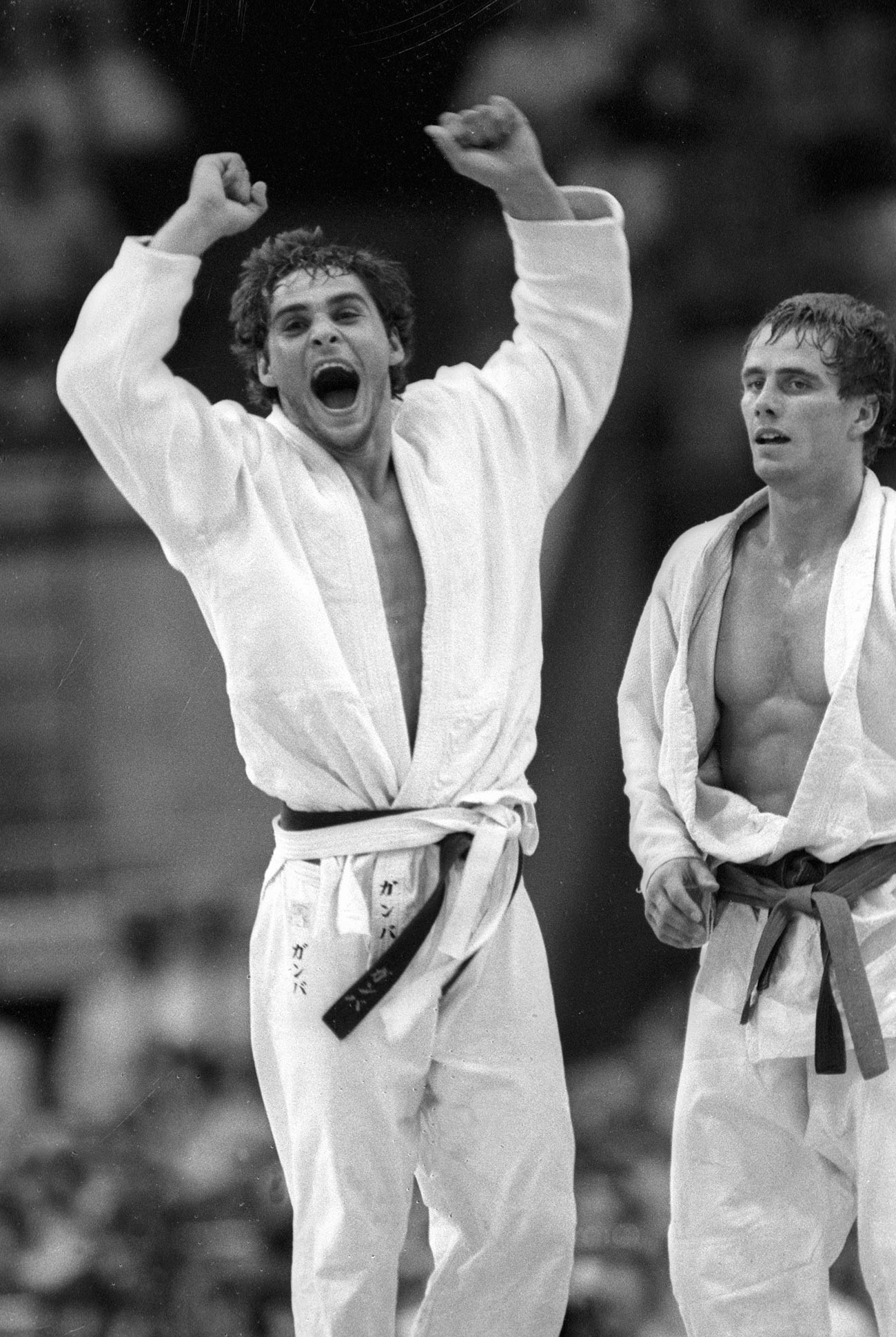
Italy's Ezio Gamba, Olympic judo champion, left, at the 22nd Summer Olympics in Moscow.
Vladimir Rodionov/Sputnik7. Despite the fact that the 22nd Summer Olympic Games are referred to simply as the Moscow Olympics, the Soviet capital was not the only city to host the games. Some football matches were played in Leningrad (now St. Petersburg), Minsk (Belarus) and Kiev (Ukraine), while Tallinn (Estonia) hosted the sailing regatta.
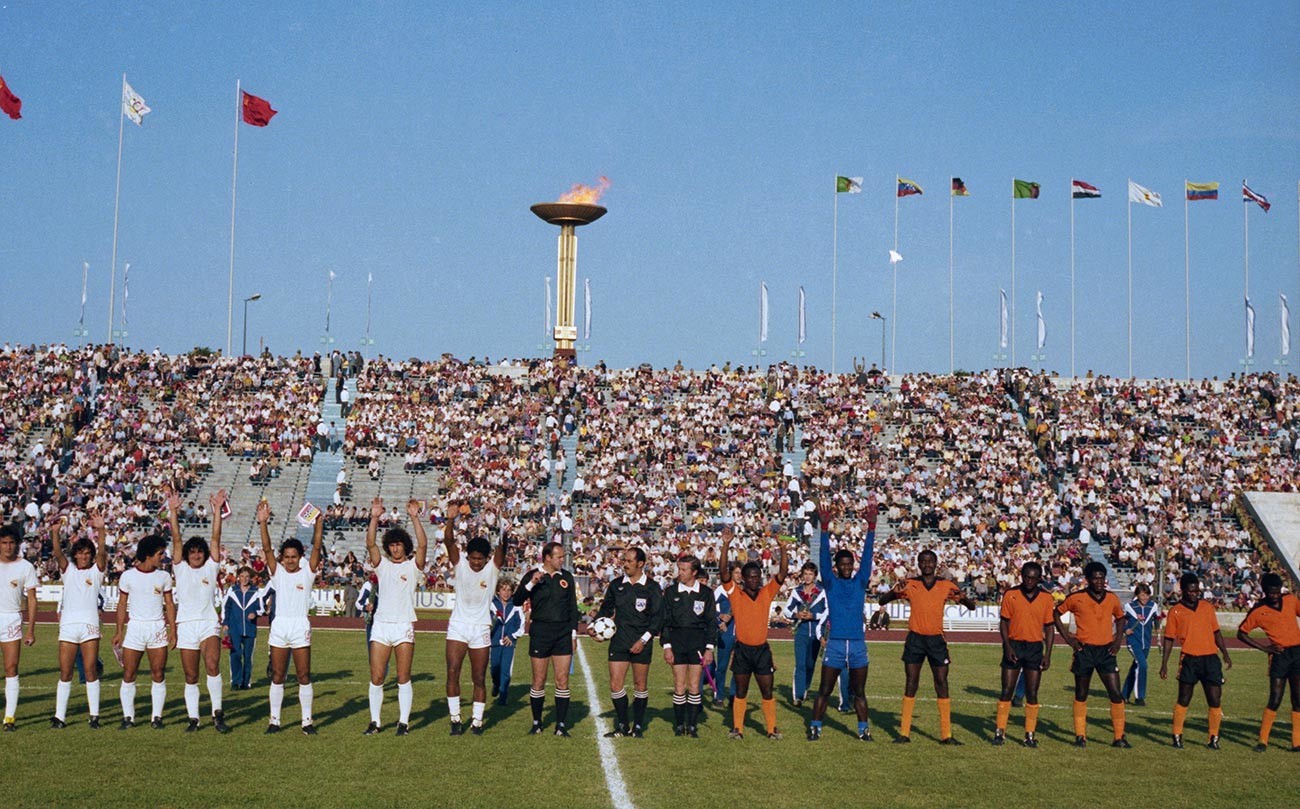
Football teams of Venezuela and Zambia pictured before the match in Leningrad.
Maxim Blokhin/TASS8. The task of maintaining security at the games was handed to the KGB’s 11th Department, which handled counter-terrorist operations. Earlier in 1974, the Alpha detachment was created with a view to preventing a repeat of the 1972 Munich Olympics, which had resulted in hostages and deaths.
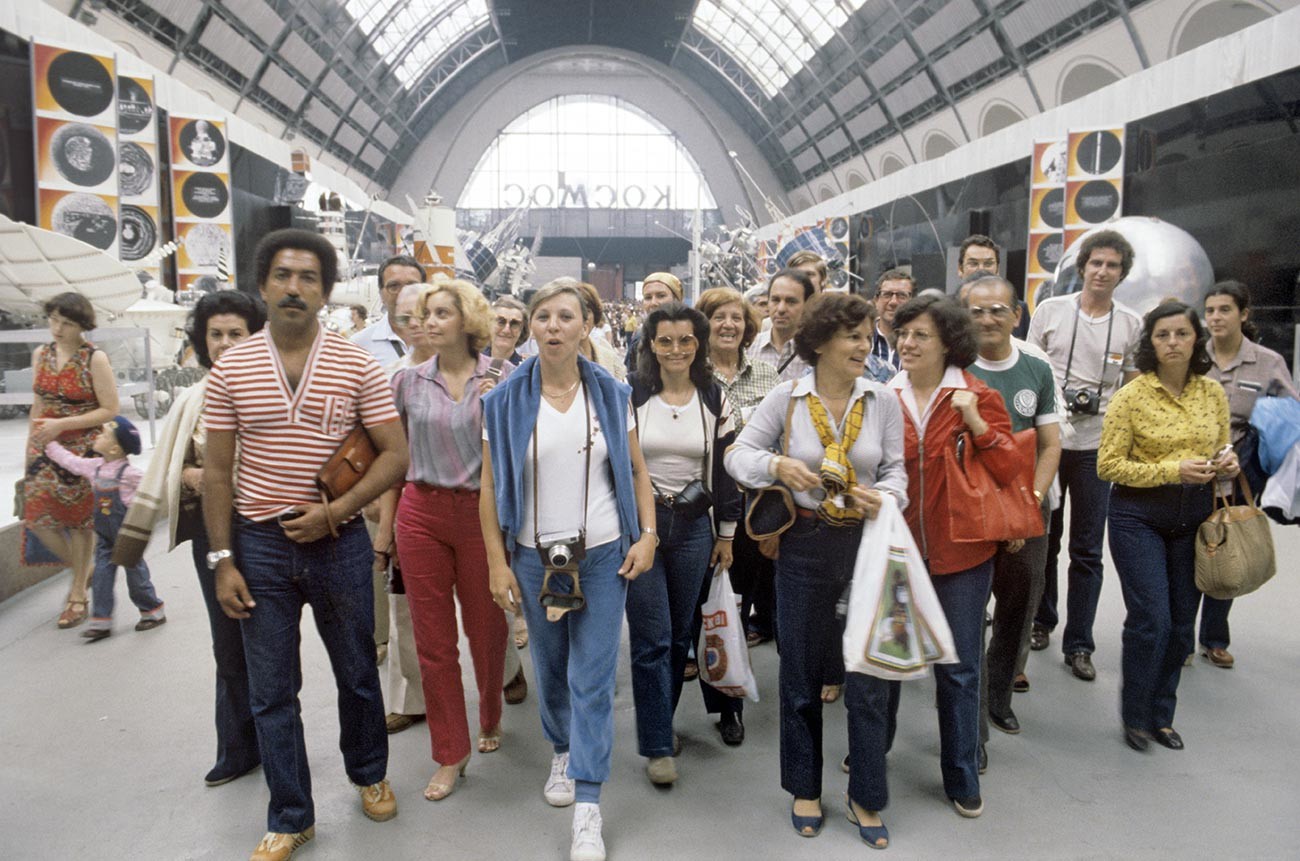
Guests from Brazil, who arrived for the XXII Summer Olympic Games, in the Space Pavilion, VDNKh of the USSR.
Akexander Lyskin/Sputnik9. The famous smiling bear mascot - ‘Mishka’, whose eight-meter figure was launched into the sky at the closing ceremony, was not the only symbol of the 22nd Olympic Games. A lesser known, but also official, symbol was the Estonian seal ‘Vigri’, who popped up during the sailing stage in Tallinn.
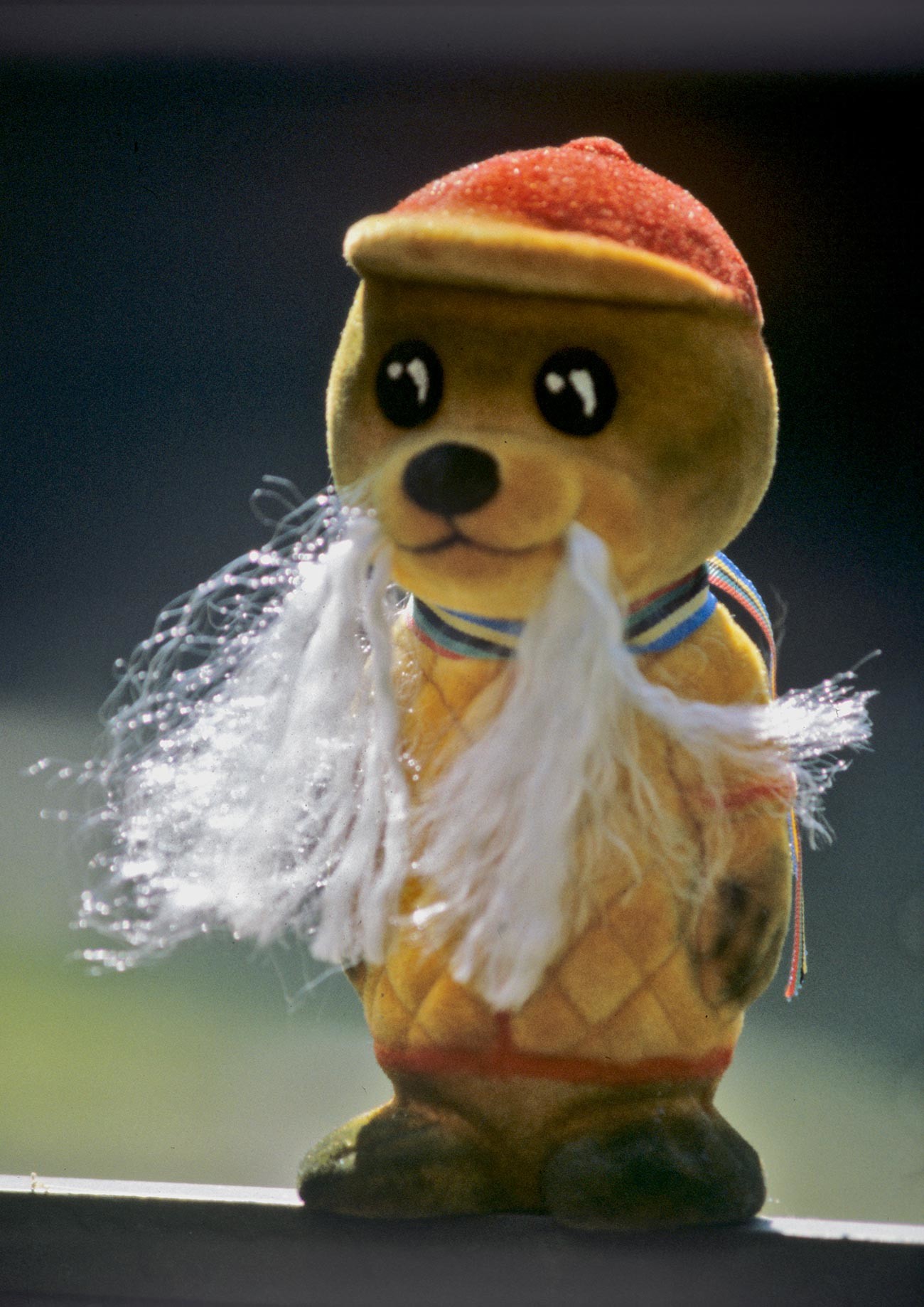
Puppy seal Vigri, symbol of Tallinn Regatta.
Alexey Fedoseev/Sputnik10. The youngest athlete at the Soviet Olympics was 13-year-old Jorge Lima, a swimmer from Angola. The oldest was Bulgarian yachtsman Krasimir Krastev. He was 70 years old.
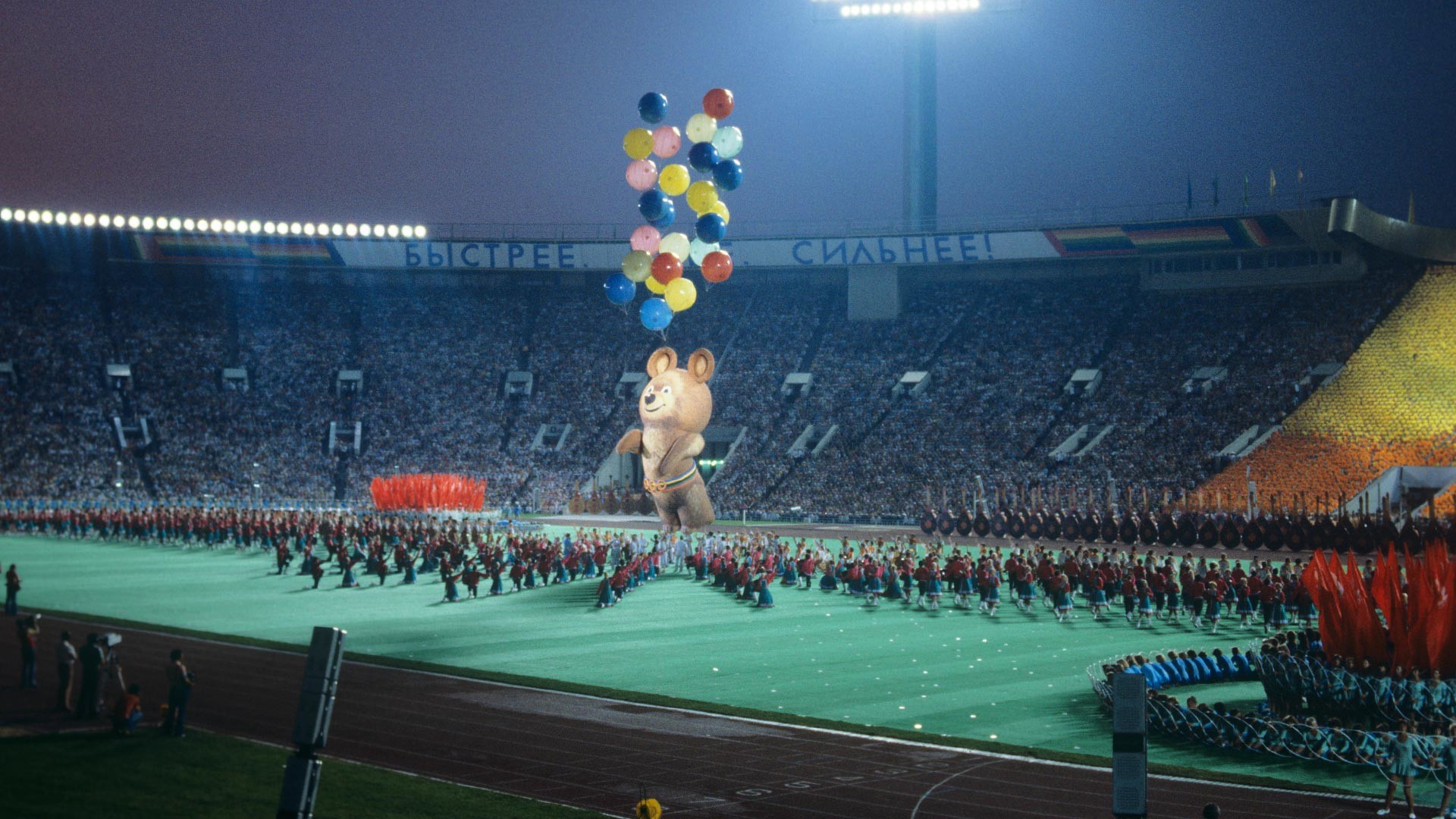
Closing ceremony of XXII Olympic Summer Games in Moscow.
Semyon Meysterman/TASSIf using any of Russia Beyond's content, partly or in full, always provide an active hyperlink to the original material.
Subscribe
to our newsletter!
Get the week's best stories straight to your inbox